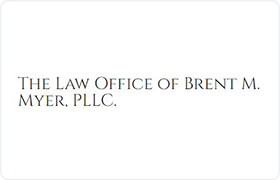 Crystal Springs Bankruptcy & Debt Lawyers, Florida
Crystal Springs Bankruptcy & Debt Lawyers, Florida
Sponsored Law Firm
-
 x
x

Click For More Info:
-
Law Office of Brent M. Myer, PLLC
27 SE Ocean Blvd Stuart, FL 34994» view mapBankruptcy & Debt Your Local Bankruptcy Attorney
Brent M. Myer has over 15 years of consumer bankruptcy experience and has represented both debtors and creditors in the past.
772-873-7794
Lawyers
1-1 of 1 matches
Divorce & Family Law, Bankruptcy, Workers' Compensation, Employment




 Brent Myer Stuart, FL
Brent Myer Stuart, FL Practice AreasExpertise
Practice AreasExpertise